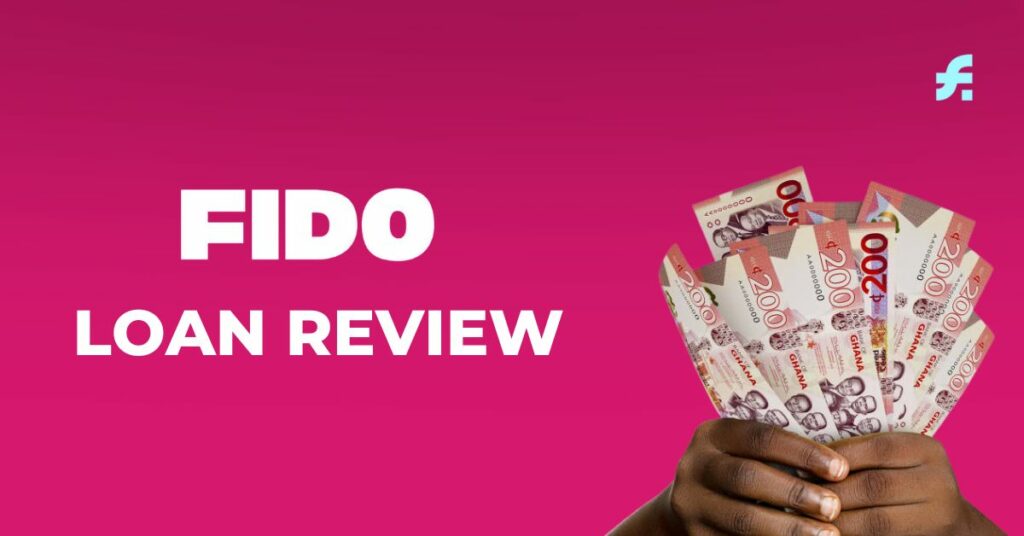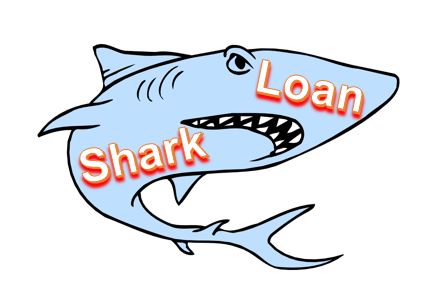In recent years, the financial landscape in Ghana has undergone a dramatic transformation due to the rise of digital lending platforms and the introduction of many loan options. One of the loan services that has stood out is the Fido loan, offering a faster, more convenient borrowing experience for those in need of financial assistance.
One of the unique things about the Fido loan that has drawn attention is the fact that people can borrow money instantly without collateral.
But before you dive in and apply for that instant cash, it’s crucial to understand how Fido Loans work, the types of loans you can take, the maximum and minimum loan amounts, and the interest rates you’ll encounter. These are questions that can significantly impact your financial future, and in this review, we’re here to answer them
Here’s what you can expect to find in this review:
- A crystal-clear breakdown of the types of loans you can take
- Fido loan interest rate
- Loan terms and repayment flexibility
- Is Fido the right fit for you?
- Is Fido loan a scam?

Understanding Fido Loans
Fido Loan is an instant short-term loan service provided by Fido Micro Credit (FIDO), a financial institution licensed by the Bank of Ghana. Fido Microcredit is a private money lender in Accra that provides loans through the Fido mobile app. Anyone with a valid ID and a mobile money account can qualify, with no collateral or guarantors required.
Their advanced technological platform makes it easy to access loans with just your phone and a few taps. Even people with no established financial history can access financial support.
Fido offers two primary loan types: Personal Credit and Business Credit.
Fido Money Lending Limited offers these loans to assist borrowers with urgent cash needs, not for long-term purposes.
Fido Loans Requirements: What You Need to Qualify
The following are the requirements for the FIDO loans:
- You must be a Ghanaian resident.
- You must be at least 18 years old.
- Have an active mobile money wallet, registered in your name.
- Have a valid Ghana Card.
What is the minimum and maximum loan amount I can borrow?
The Fido Loan is an instant solution for small financial hurdles. The minimum loan amount is GHS 200, which is the most likely amount you will receive initially. Over time, with consistent repayment, your Fido Score will improve, allowing you to access loans of up to GHS 4,000.
How does Fido Loan work?
Applying for a loan with Fido Loans is straightforward and easy. Here’s how to go about it application process:
- Install the Fido App from the Google Play Store and Apple App Store
- Register your Fido Account by providing a valid mobile number
- Verify your identity through a quick verification process. You might be required to take a selfie and a photo of your Ghana card.
- After completing verification, From the Home Page of the app, select ‘Draw now’.
- Calculate your Fido score by answering the questions that follow to receive your Fido credit score.
- Select the amount you want to draw. You can choose between 10-33 days for your initial credit term. And up to 6 months installments for returning customers.
- If your application is successful, then review and accept the credit terms.
- Lastly, add a payment method
Note: You might ask some customers to visit their branch if they can’t verify them appropriately online.
What is the Fido interest rate?
FIDO loan interest rates and fees are personalized based on your Fido Score. Typically, the interest rate is 0.299%, in addition to an undisclosed processing fee.
Returning customers with a strong credit history and a record of timely loan repayments will benefit from lower interest rates and the opportunity to borrow larger amounts, up to GHS 1,000. The minimum interest rate for FIDO loans is 8% for 30 days.
What are the repayment terms for FIDO loans?
FIDO loans have flexible repayment terms, and the applicants are free to choose the one they prefer. The repayment terms of FIDO loans are usually between 10 and 90 days. And you can repay it in one or multiple installments. But this especially depends on your eligibility.
Is Fido Loan Right for You?
When assessing loan options from various lenders, the most important factor is finding terms that fit your needs and financial situation. If you identify with any of the following situations, a Fido Loan might be the right choice for you:
- You need financial assistance within minutes
- You have a reliable source of income that can comfortably cover the loan amount plus interest
- Your Financial Needs Can Be Met with GHS 200
If none of these scenarios fit your situation, you might need to look into other loan alternatives that better meet your needs.
Frequently Asked Question
1. How fast can I get the Fido loans?
Before applying for any loan, always know how fast you can get the loan. This will help you make the right decisions as regards the timeframe you are trying to meet up. And also to know whether you’d look for another lender.
2. Is Fido Loan legit?
Fido is legit. It is licensed by the Bank of Ghana, the Bank of Uganda, and the National Credit Regulator (South Africa).
Conclusions
Fido Loan can be a lifesaver for Ghanaians facing unexpected financial needs. The convenience of their mobile app, combined with their quick approval process, makes them a tempting option. However, it’s crucial to remember that any loan requires responsible borrowing.
Before applying, carefully consider your financial situation and ensure you can comfortably afford the repayments. Fido’s minimum loan amounts are suitable for smaller needs, but larger loans come with higher costs.
If you’ve weighed the pros and cons and believe a Fido Loan is the right fit for you, download their app and get started! Remember, borrowing responsibly is key to a healthy financial future.
We hope this Fido Loan review has been helpful! For more personal finance tips and tricks, read other blog posts


